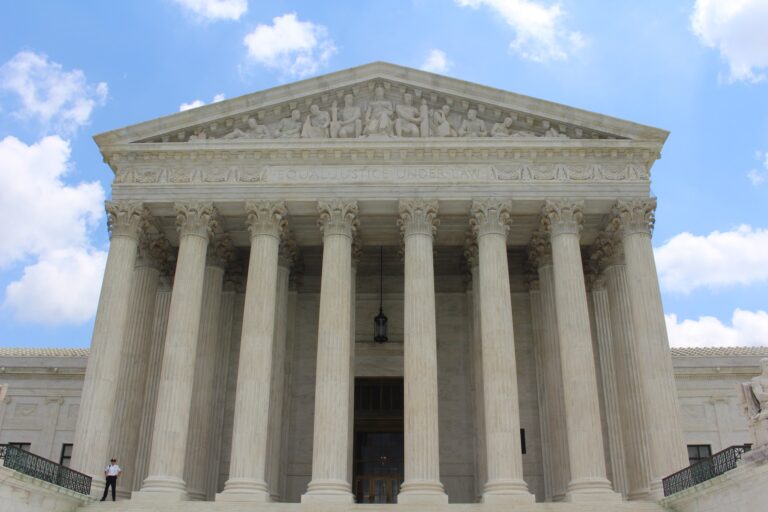Can a Company Sue a Shareholder? Complete Guide

Corporate structures can be quite complex and sometimes difficult to understand. A shareholder is an individual, institution, or entitty that owns one or more shares of a company’s stock.
Shareholders play an important role in the functioning of a corporation. Since they hold a financial stake in the business, granting them certain rights and responsibilities. These rights often include voting on key corporate decisions, such as the election of the board of directors and approval of significant company policies, but it can vary greatly.
Naturally, a company has a relationship with its shareholders but this relationship can vary greatly depending on how the shareholder structure is set up.
Shareholders invest capital in a company with the expectation of financial returns, typically in the form of dividends and capital appreciation. In return, companies are entrusted with the responsibility of maximizing shareholder value through strategic decision-making and effective management. This relationship is naturally underpinned by legal and ethical considerations since companies are obligated to act in the best interests of their shareholders. This relationship is influenced by various factors, including market conditions, corporate governance practices, and the regulatory framework in which the company operates.
It’s important to understand both the rights and responsibilities of shareholders that govern the shareholder and company relationship.
Shareholder Liability
Limited Liability Concept
Shareholder liability is an important aspect of corporate law and the concept of limited liability is a cornerstone in providing protection to shareholders. Limited liability means that a shareholder’s personal assets are shielded in the event of financial distress or legal issues faced by the company.
In general, shareholders are only liable for the debts and obligations of the company up to the extent of their investment in the company. This protection is crucial to encourage investments and entrepreneurship by mitigating the personal risk associated with owning shares in a company.
Limited liability encourages individuals to invest in companies without fearing personal financial ruin but also contributes to the overall stability of the financial markets. This legal principle is key in attracting investors and promoting the efficient allocation of capital. Ultimately capital is the lifeblood of entrepreneurship and businesses, allowing them to flourish and innovate without subjecting shareholders to undue personal risk.
Exceptions to Limited Liability
Limited liability is a fundamental principle but there are situations where the corporate veil can be pierced, thereby exposing shareholders to personal liability.
Piercing the corporate veil is a legal concept where a court disregards the separation between the corporation and its shareholders which means that shareholders are held personally responsible for the company’s actions. This is typically invoked when there is evidence of fraudulent activities, abuse of corporate privileges, or inadequate adherence to corporate formalities.
Moreover, shareholders can also face personal liability if they engage in misconduct that goes beyond the protection of limited liability. This may include instances where a shareholder uses the corporate structure to perpetrate fraud, engage in illegal activities, or intentionally harm the company or its stakeholders. In these cases, courts may hold shareholders accountable for their actions.
Grounds for Company Lawsuits Against Shareholders
Now, can a company sue a shareholder? There are some instances here this is possible. Let’s have a closer look.
Breach of Fiduciary Duty
One of the primary grounds for a company to pursue legal action against a shareholder is the breach of fiduciary duty.
Shareholders, and especially those that serve as directors or offices, have a fiduciary duty to the company and its stakeholders. This is a duty that encompasses the obligation to act in the best interests of the company, exercise due care, and avoid conflicts of interest. If a shareholder violates this duty, it can lead to legal consequences.
Breaching fiduciary duty can manifest itself in many different forms, such as self-dealing, where a shareholder prioritizes personal interests over those of the company, or misappropriation of corporate opportunities.
Moreover, if a shareholder engages in activities that undermine the financial health or reputation of the company, it could be considered a breach of fiduciary duty. In these cases, you could take legal action based on breach of fiduciary duty with the purpose of holding shareholders accountable for actions that betray the trust placed in them by other shareholders and the company itself.
Shareholder Disputes
Shareholder disputes can arise within companies for many different reasons, ranging from disagreements over company strategy and management decisions to personal conflicts among shareholders. These disputes can obviously harm and negatively impact the smooth functioning of the company. In addition, if the issues are left unresolved, they may escalate to a point where legal intervention becomes necessary.
So, can these issues be resolved through legal means? In general, companies have internal mechanisms for dispute resolution in order to resolve issues without having to resort to legal action. But sometimes, these mechanisms may not be sufficient. In these cases, a company may turn to legal action to address shareholder conflicts.
A company may choose to seek court orders to enforce shareholder agreements, challenge the validity of certain shareholder actions, or pursuing remedies for damages resulting from the disputes. These types of issues are often complex and may involve multiple parties. To do this successfully, a careful examination of contractual obligations and applicable laws is required.
Legal Procedures for Companies Suing Shareholders
Legal Basis for the Lawsuit
If a company wants to procd with a lawsuit against shareholders, there are several legal procedures to do so. Oftentimes, companies initiate legal action against shareholders based on statutory violations. These violations could include breaches of securities laws, insider trading, or other regulatory offenses. In these cases, legal proceedings often involve regulatory bodies. Companies will then collaborate with these authorities to pursue legal remedies against shareholders who have violated applicable statutes.
Another common legal basis for companies suing shareholders is the breach of contractual obligations. Shareholders enter into various agreements with the company depending on the relationship between the shareholders and the company. This may include shareholder agreements or voting agreements. These agreements clearly outline specific rights and responsibilities. If a shareholder fails to meet these contractual obligations, the company may have grounds to file a lawsuit seeking damages or specific performance.
Initiating Legal Action
So, how do you go about initiating legal action from a practical standpoint?
The first step often involves the company filing a complaint against the shareholder. This document outlines the legal basis for the lawsuit, the specific actions or omissions of the shareholder that led to the dispute, and the relief sought by the company. The complaint is an important legal document that initiates the entire legal process.
After a company has filed the complaint, it must serve notice to the shareholder and inform them of the legal proceedings.
This involves delivering the complaint and related legal documents in accordance with the applicable rules of civil procedure. Proper service is required to make sure that the shareholder has notice of the legal action and an opportunity to respond.
Shareholder Defenses
As with all legal cases, the defendants have the opportunity to respond and counter any claims to protect themselves. Oftentimes, shareholders assert the protection of limited liability as a defense against legal action. They may argue that their personal assets should not be at risk, especially if the alleged actions fall within the scope of their protected activities as shareholders. To protect oneself successfully, it’s important to establish and emphasize adherence to corporate formalities and separate corporate identity in order to maintain limited liability protection.
Another defense that shareholders can use to defend themselves against legal action is to challenge the factual allegations made by the company. This may involve presenting evidence and documents to counter claims of misconduct which prove that the actions in question were within the bounds of their rights and responsibilities. A defendant could also dispute the interpretation of contractual obligations.
Limited Liability Protection
If a shareholder ants to leverage limited liability as a defense, they must be able to demonstrate strict adherence to corporate formalities. This includes maintaining clear separation between personal and corporate finances, holding regular shareholder meetings, and ensuring proper documentation of corporate decisions. By upholding these formalities, a shareholder can strengthen its position that they were operating within the legal framework and should be shielded from personal liability.
As a shareholder, you can strengthen your defense by showcasing a commitment to sound corporate governance practices. This may include things like active participation in decision-making processes, transparent communication with shareholders, and following ethical standards. If a shareholder can demonstrate a history of responsible corporate conduct, it can help mitigate claims that the shareholder’s actions warrant piercing the corporate veil.
Procedural Defenses
Another type of defense that shareholders can use is to challenge the legability of the lawsuit itself. They can do this by questioning whether proper legal procedures were following. The purpose of this is to scrutinize the filing of the complaint, the service of legal notice, or other procedural aspects. If irregularities or violations of due process can be proved and identified,shareholders may try to have the lawsuit dismissed on procedural grounds.
Last but not least, shareholders can also try to raise jurisdictional challenges by arguing that the court hearing the case lacks the appropriate authority. This is a defense that can be used when the legal action is filed in a jurisdiction where the shareholder contests having sufficient contacts or where the alleged actions did not occur. If done successful, it could result in the case being transferred to a different court or, in some cases, dismissed.
Alternative Dispute Resolution
Most companies try to avoid legal action whenever possible since it is a complex, costly, and time-consuming process hat takes away focus from the core business operations. As such, a company may look for other options to settle the issue.
The first alternative solutions are mediation and arbitration.
Mediation and Arbitration Options
Alternative dispute resolution (ADR) methods like mediation and arbitration offer alternative paths to litigation for companies who want to avoid the legal process and find a more convenient, more swift resolution. Mediation involves having a neutral third party facilitate negotiations between the conflicting parties with the aim of reaching a mutually acceptable resolution. Arbitration is a more formal process where an arbitrator or a panel of arbitrators acts as a private judge and comes to a binding decision after having been presented with facts from both parties.
Alternative dispute resolution has several benefits including confidentiality, cost-effectiveness, and the potential for quicker resolution compared to traditional litigation. Confidentiality is particularly important for companies and shareholders who want to resolve disputes discreetly without any negative press that could damage the company’s reputation.
However, the main con of ADR is the lack of a formal legal precedent (in arbitration) and the potential for power imbalances, depending on the sophistication and resources of the involved parties.
When and Why Companies May Choose These Methods
There are several reasons why companies may choose to use ADR instead of taking the legal route. The main reason for companies to choose ADR is to preserve ongoing business relationships. Litigation can be a lengthy process that can be potentially damaging to the company and its reputation. Most importantly, it can negatively impact the relationship between the company and its shareholders. For that reason, mediation may be a suitable solution as it allows parties to explore solutions that may not be possible in a courtroom setting.
Moreover, ADR processes are often more efficient and cost-effective than traditional litigation. Court proceedings can be time-consuming and expensive but mediation offers a faster resolution at a fraction of the cost. For companies looking to resolve disputes promptly without having to spend a fortune on legal fees, it could be a suitable alternative.
Last but not least, ADR offers great flexibility to tailor solutions to the specific needs of the parties involved. The parties can choose an arbitrator with expertise in the relevant industry which ensures a more informed decision. Thanks to mediation, the parties are able to discuss and find more creative settlement options beynd what a court could order.
Shareholder Lawsuits’ Impact on Corporate Governance
Shareholder lawsuits can have an impact on corporate governance which makes the company take actions to prevent similar issues from happening again.
Changes in Company Policies
Shareholder lawsuits can lead to a reassessment of existing corporate policies and practices. Companies may choose o revie and modify internal policies related to decision-making processes, financial disclosures, and adherence to regulatory requirements with the purpose of enhancing transparency, strengthening compliance, and preventing future disputes that could lead to legal action.
Furthermore, companies may implement governance reforms as a result of legal actions to address identified shortcomings. This could involve things like changing the board structure, establishing specialized committees, or adopting enhanced disclosure practices. Governance reforms are a proactive measure that demonstrates a commitment to responsible corporate conduct.
Impact on Shareholder Relations
Perhaps the biggest challenge when companies sue shareholders is that they can negatively impact shareholder relations in different ways. Ultimately, litigation can create an adversarial atmosphere which erodes trust and confidence in the company. To mitigate these tensions, it is important that the company communicates transparently. A company should also take a proactive approach by engaging and interacting with shareholders to address concerns, clarify positions, and rebuild trust.
Another big challenge is that shareholder lawsuits can lead to shareholder activism. When other investors observe legal proceedings and outcomes, they may take the opportunity to leverage perceived weaknesses or governance issues highlighted in lawsuits to advocate for changes within the company.
Long-Term Effects on Corporate Culture
Furthermore, lawsuits against shareholders can also have long-term effects on corporate culture.
Lasuits can cause a cultural shift in a company which leads to a greater emphasis on the importance of legal compliance and ethical conduct. Moreover, companies may put more focus on building a culture of compliance which embeds ethical considerations into decision-making processes to prevent future legal issues. This shift can ultimately influence employee behavior and corporate values.
Last but not least, legal challenges often tend to lead to a sharpened focus on risk management. This involves identifying potential areas of legal vulnerability and implementing risk mitigation strategies with enhanced internal controls.






